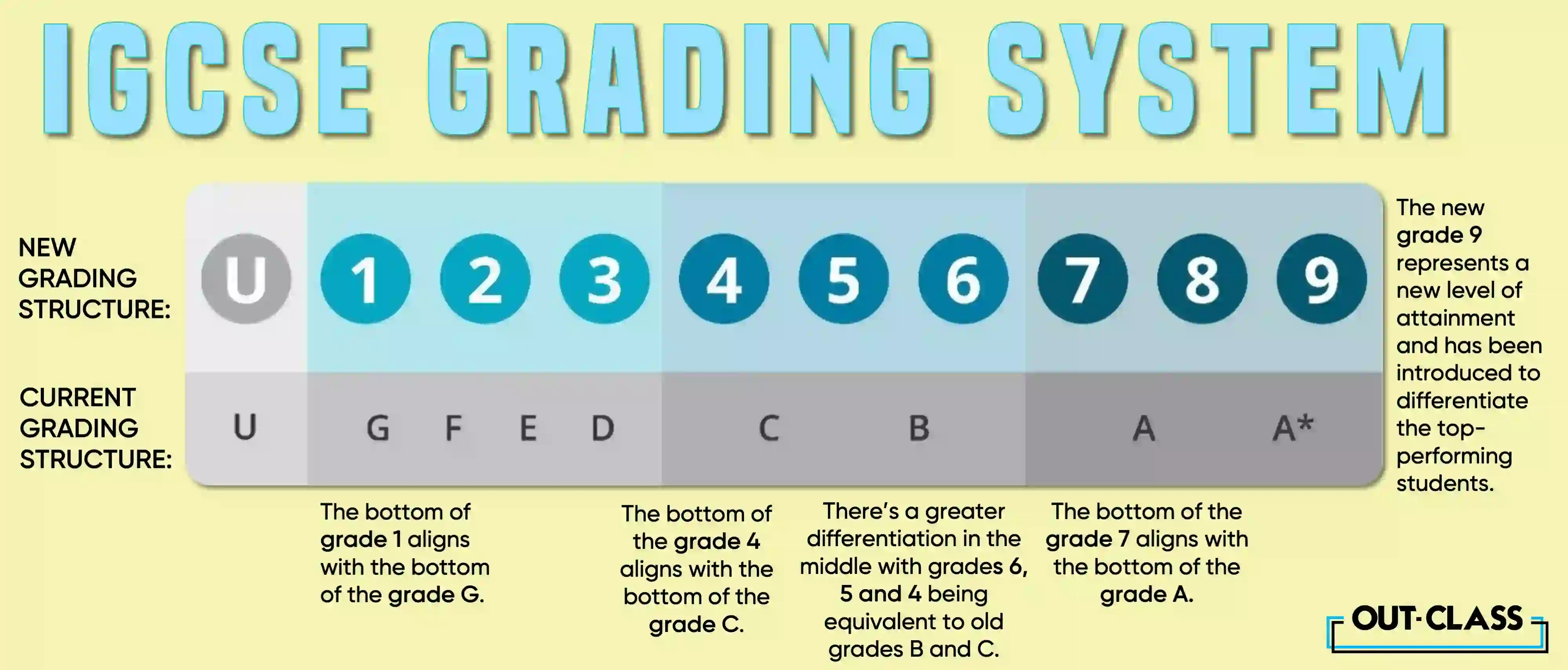Perplexed by how the grading system of the International General Certificate of Secondary Education (IGCSE) works? Fear not! We are here to solve this confusion for you. Let's delve into the intricacies of IGCSE grades, demystify the system, and explore its significance in the realm of education.
What is IGCSE Exam?
IGCSE stands for International General Certificate of Secondary Education. It is a globally recognized qualification taken by students, usually at the age of 14 to 16, marking the end of their secondary education.
Is GCSE Harder Than IGCSE?
One common query among students is whether GCSE (General Certificate of Secondary Education) is more challenging than IGCSE. While both qualifications are rigorous, the structure and content may vary. IGCSE is renowned for its international outlook, emphasizing critical thinking and practical skills alongside academic knowledge.
Related: Differences Between IGCSE and O Level
How Many IGCSE Subjects are Required in UAE?
In the UAE, the number of IGCSE subjects required may vary depending on individual school curriculums. However, students typically undertake a range of subjects spanning core disciplines like Mathematics, English, and Sciences, along with optional subjects tailored to their interests and career aspirations.
Why Study IGCSE?
Studying IGCSE offers a myriad of benefits. It provides a solid foundation for further education, equips students with essential skills for the future, and enhances their global outlook. Moreover, IGCSE is recognized by universities worldwide, opening doors to diverse academic and career opportunities.
Which IGCSE Subjects are Easiest?
Determining the "easiest" IGCSE subjects is subjective and varies from student to student. While some may find Sciences or Mathematics more challenging, others may excel in Humanities or Languages. The key lies in selecting subjects aligned with individual strengths and interests. However, taking into account higher passing rates and lower grade thresholds, the following IGCSE subjects may be your best bet for an "easy" grade:
-
Business Studies
-
Art & Design
-
Environmental Management
-
Geography
-
Physical Education
Related: 7 Easiest Cambridge O Level Subjects in 2024
IGCSE Grading System Decoded
IGCSEs are traditionally graded A*-G worldwide. However, recognizing the evolving educational landscape, Cambridge International offers 9-1 graded IGCSEs in select regions alongside the traditional grading system. The 9-1 grading scale provides a more nuanced assessment, with 9 as the highest grade and 1 as the lowest. Schools in these regions can opt for A*-G or 9-1 grading.
The grading scale comprises A*, A, B, C, D, E, F, G, and U (ungraded). Three anchor points benchmark standards between the two grading systems: a 9-7 correlates to an A*-A, a 6-4 correlates to a B-C, and a 3-1 correlates to a D-G.
Related: O Level Grading System & Threshold
What is considered a good IGCSE result?
The grades from A* to D are considered good results as E to U are not considered passing grades.
| Grade | Percentage |
| A* | 90%+ |
| A | 80-89% |
| B | 70-79% |
| C | 60-69% |
| D | 50-59% |
| E | 40-49% |
| F | 30-39% |
| G | 20-29% |
| U | 0-19% |
IGCSE Courses Online: Accessible Education at Your Fingertips
With the advent of digital learning platforms, IGCSE courses are now accessible online. These platforms offer flexibility, allowing students to study at their own pace and access resources from anywhere globally, fostering a dynamic learning experience tailored to individual needs.
Pakistan's Ed-Tech beacon, Out-Class, offers many IGCSE courses curated by subject experts at your digital fingertips. From Crash Courses to Exam Walkthroughs, Out-Class lets students take charge of their learning experience. With a track record of 94% of enrolled students achieving As and A*s, Out-Class is the only IGCSE aid you need. Moreover, Out-Class has launched its tutoring platform for international students - they match the student's needs with the vetted tutor. It's the perfect match for them!
Conclusion
In conclusion, understanding the IGCSE grading system is crucial for students' academic journey. So, embrace the challenge, aim for those coveted IGCSE grades, and embark on a journey of knowledge and discovery! Not sure about where to start your IGCSE exam prep from? Join the Out-Class Family by enrolling into the IGCSE crash courses!
FAQs
Q. What is the full form of IGCSE?
IGCSE stands for International General Certificate of Secondary Education.
Related: Guide to Cambridge IGCSE vs. Edexcel International GCSE



